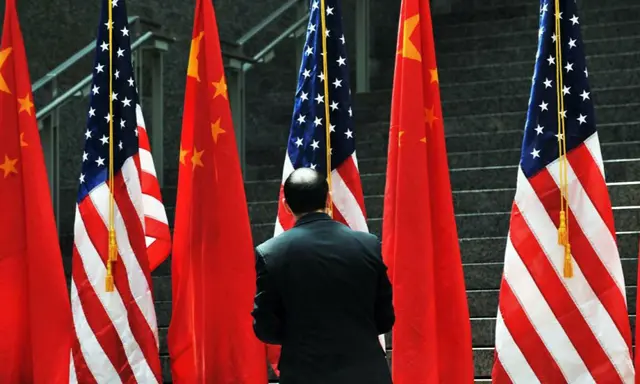“All politics is local,” was a refrain often used by Tip O’Neill, Speaker of the US House of Representatives in the 1980s. It’s an aphorism that’s still applicable to the election rhetoric directed at Beijing as 2016’s main US Presidential candidates seek support from voters who feel they have lost out to China in the process of economic globalisation.
But if the next US Administration chooses to pick an economic fight with China, as the election rhetoric has suggested, then the outlook for the world economy will undoubtedly dim and that is surely not in the United States’ wider national interest.
“China’s ongoing rebalancing toward more sustainable growth is welcome, while vigilance is necessary with regard to external challenges that might arise,” was a conclusion of an International Monetary Fund (IMF) committee communique released on 9 October.
The chances of collateral damage to the global economy will only increase if Sino-US economic ties become a US domestic political football.
Africa is a case in point. Anyone doubting China’s position as a locomotive for economic activity on that continent need only look at the new 750km railway built by two Chinese firms and financed with Chinese money, linking Ethiopia’s capital Addis Ababa to the Red Sea port of Djibouti.
Turning what was a three-day journey by road into a trip of some ten hours, the railroad offers landlocked Ethiopia, which routes 90 per cent of all its imports and exports through Djibouti, the chance to grow its economy at a much faster pace.
Of course, China is not being totally altruistic. Such investments in Africa’s infrastructure simultaneously allow China to streamline its own import chain, facilitate access to new markets for China’s own products and, presumably, earn a real return on the actual investment itself.
But it’s arguably a win-win situation for both sides.
At a retail level, the Chinese consumer clearly has the ability to change the fortunes of even the largest global manufacturers, if recent sales figures released by the German carmaker Volkswagen (VW) are anything to go by.
Containers being moved at the port of Qingdao in eastern China's Shandong province. China is a main source, among the top 10, of export demand for over 100 economies that account for about 80 per cent of world gross domestic product. Photo: EPA
Chinese consumers, clearly finding the product and the offered deals attractive, boosted VW sales in China last month by 20 per cent to 382,300 vehicles, a conspicuous contribution to the 7.1 per cent increase in the carmaker’s total global sales of 947,600.
It might suit US presidential candidates to think otherwise but the bottom line is that the whole world has skin in the game when it comes to China and its economy.
As an IMF report last month said, “Given the size and openness of the Chinese economy – the sharp increase in its share of global imports over the past decade has made it a main source (top 10) of export demand for over 100 economies that account for about 80 per cent of world [Gross Domestic Product].”
In commodity markets, the IMF noted that “by the end of 2014 China’s demand for metals accounted for more than 40 per cent of global demand.” That’s quite some clout.
With all this in mind it should come as no surprise that the IMF concludes “trade links stand out as the main transmission channel of spillovers from China” to the rest of the world.
Indeed, markets were unnerved on Thursday after data showed that China’s exports in September had fallen 10 per cent from a year earlier, while imports shrank 1.9 per cent.
Indeed, an unexpected rise of 1.5 per cent in August has been the only expansion in imports into China for almost two years.
That might help explain why Singapore, for whom China is its biggest trading partner, said on Friday that its own economy shrank a seasonally adjusted 4.1 per cent in the third quarter, when compared to the previous three months. That was the biggest contraction in the Singaporean economy since 2012.
Admittedly there’s also the very real possibility that “Chinese industries may also be contributing to global “overcapacity” in some sectors, for example, steel and cement,” the IMF wrote, and that will have to be worked through. Unprofitable capacity is invariably not economically sustainable.
But let’s finish where we began, in Africa.
“China’s foreign direct investment is especially important for low-income countries in particular because it holds large investments in small emerging Asian and sub-Saharan African economies,” the IMF said. Where would those economies be without it?
China’s is helping to make the world economy work.
It’s in the world’s interests therefore that the election rhetoric about China being voiced by US presidential candidates should stay on the campaign trail and not find its way into the Oval Office.
(SOUTH CHINA MORNING POST)
 简体中文
简体中文

